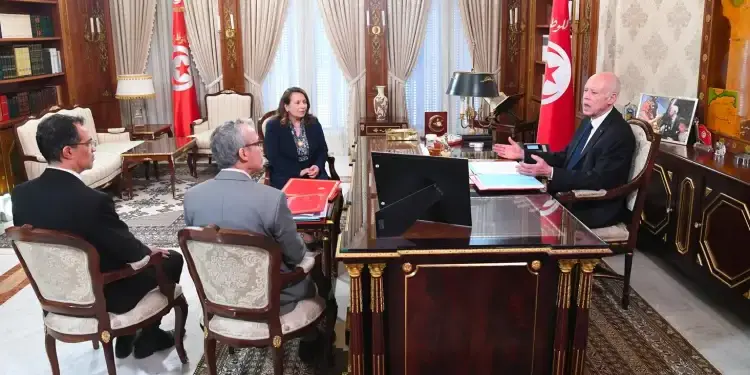Tunisian President Kaïs Saïed held a meeting in Carthage on Friday, May 2, 2025 with three members of the government: the Minister of Industry, Fatma Thabet Chiboub, the Minister of Social Affairs, Issam Lahmer, and the Minister of Agriculture, Ezzeddine Ben Cheikh. At the center of discussions: the future of several abandoned public companies, mostly located in long marginalized regions.
In a resolutely proactive tone, the Head of State claimed to follow personally “several files in their smallest detail” and “work for the mobilization of the necessary funding” to ensure their revival. A statement that comes in a tense economic context, while calls for a structural reform of the Tunisian productive apparatus are increasing.
Among the cases mentioned are the Dahmani flour mill and the mezzouna plastic plant, both stopped for several years. Kaïs Saïed denounced “decades of corruption and unjust policies between regions”, while calling for “breaking with traditional bureaucratic approaches”.
The president urged members of the government to adopt a working method “inspired by the spirit of the revolution”, more direct and more effective, to meet the pressing expectations of the population. He notably pointed out the ineffectiveness of repeated committees, which do not lead to any concrete action.
In filigree, it is a criticism of the administrative apparatus and the inheritance of the previous governments that the president has formulated, while trying to print his own method: that of a tight, centralized and geared -executed governance.
“The riches of the country are abundant, they must benefit the people,” he insisted, stressing that the State has the necessary resources, provided they neutralize the predation circuits and the pockets of resistance to change within the administration.








